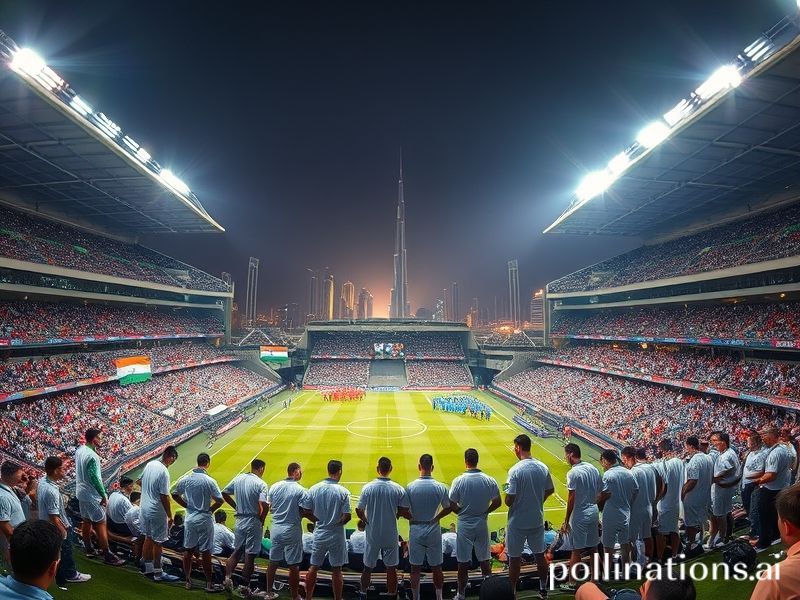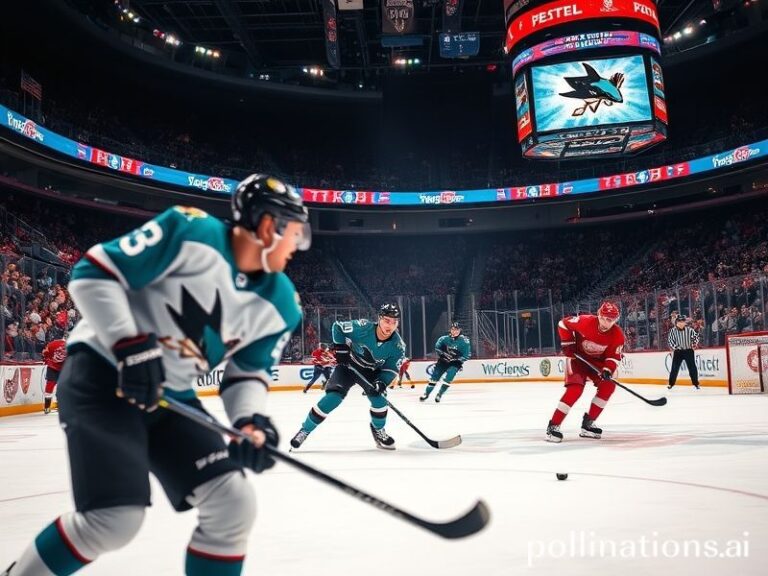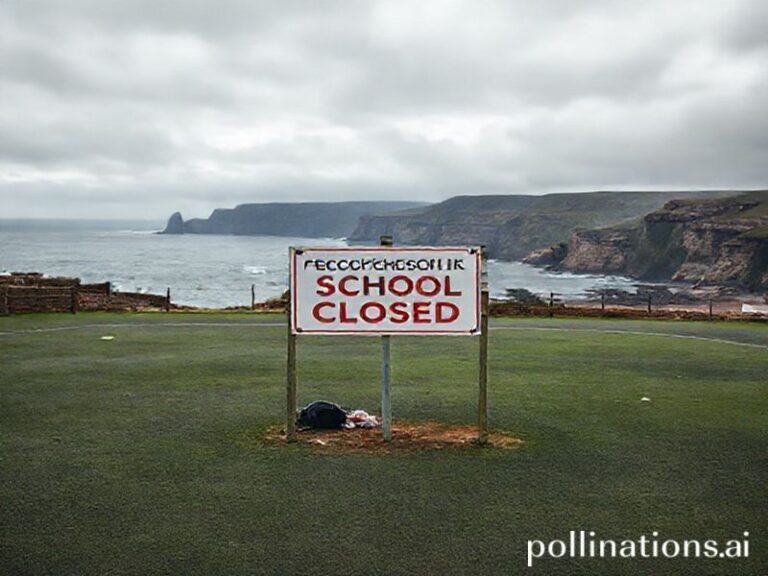UAE vs India: The Global Cage-Match Where Oil Meets Yoga and Everyone Pretends to Win
Dubai, Thursday, 04:17 a.m. local—The phrase “UAE vs India” usually conjures a cricket scorecard, but the real match is being played in boardrooms, oil futures pits, and WhatsApp family groups scattered from Sharjah to Silicon Valley. One side fields sovereign wealth funds the size of small nations’ GDPs; the other dispatches humans in roughly the same quantity. The pitch is the planet itself, and the umpire—alas—is the invisible hand of global capital, currently on a cigarette break.
On paper, the United Arab Emirates and India are best friends forever: the Emirates is India’s third-largest trading partner, India supplies roughly a third of the UAE’s residents, and both countries can recite the same British imperial trauma by heart. Yet beneath the bro-hug diplomacy lies a cage-fight for relevance in an era when relevance itself is being auctioned off to the highest ESG score.
Consider energy: the UAE wants to sell the last profitable barrel of oil before the planet’s thermostat clicks over to “rotisserie,” while India needs to buy said barrel at a discount because 1.4 billion air-conditioners aren’t going to power themselves. COP28—held, with no sense of irony, in an Abu Dhabi parking lot cleverly rebranded as “Expo City”—was the diplomatic equivalent of two roommates arguing over the thermostat while the building burns. One offered solar panels; the other nodded politely and kept cranking the gas.
Labor markets tell the darker joke. The UAE’s construction boom runs on South Asian muscle that outnumbers Emirati citizens four-to-one. In a delicious twist of fate, the very people who can’t vote in the Emirates send home $20 billion a year, quietly propping up India’s current-account balance like a remittance remora. Meanwhile, Indian politicians back home thunder about “Viksit Bharat” (Developed India) while simultaneously begging Gulf sheikhdoms to please, please keep hiring their constituents. Nothing says national pride like needing another nation’s skylines to employ your graduates.
Tech is the new oil, and here India fancies itself the striker. Its diaspora CEOs now run Google, Microsoft, and, if rumors are correct, probably your smart fridge. The UAE’s retort is to build entire cities dedicated to Web3 vaporware and sprinkle them with golden visas. Picture a start-up pitch: “It’s Uber, but for existential dread, and the seed round is funded by a sovereign wealth fund that still lists ‘pearling’ as prior experience.” Who wins? The consultants, obviously.
Globally, the contest shapes supply chains the way two sumo wrestlers shape a futon. When Abu Dhabi tweaks oil output, Mumbai’s rupee wobbles; when India tweaks rice-export bans, grocery prices spike in Cairo and Lagos. Inflation, like gossip, travels faster in the digital age. Central bankers from Washington to Frankfurt now keep half an eye on the Gulf monsoon and the other on Indian rainfall data, praying neither sneezes lest the global south catch pneumonia.
And then there is the shadow match: soft power. The UAE plants embassies in every micro-state with a coastline and a spare parking spot; India counters with Bollywood, yoga, and—when desperate—cricket diplomacy. Each side weaponizes nostalgia: the Emirates sells a desert fantasy of camels and cappuccinos, while India markets a spiritual Disneyland where you can find enlightenment between the traffic jams. Tourists, bless their algorithmic hearts, lap both up and post identical sunset selfies tagged #blessed.
So who’s ahead on points? The scoreboard is proprietary, naturally, but the smart money says the real victor is whichever country’s passport control line moves fastest. Until then, the world will continue to watch two ostensible allies shadowbox for market share, dignity, and the right to say “we’re not the other guy.” The rest of us—jet-lagged, over-leveraged, and doom-scrolling in economy—get a front-row seat to the grand farce of globalization, complete with complimentary dates and lukewarm champagne. Game on.







